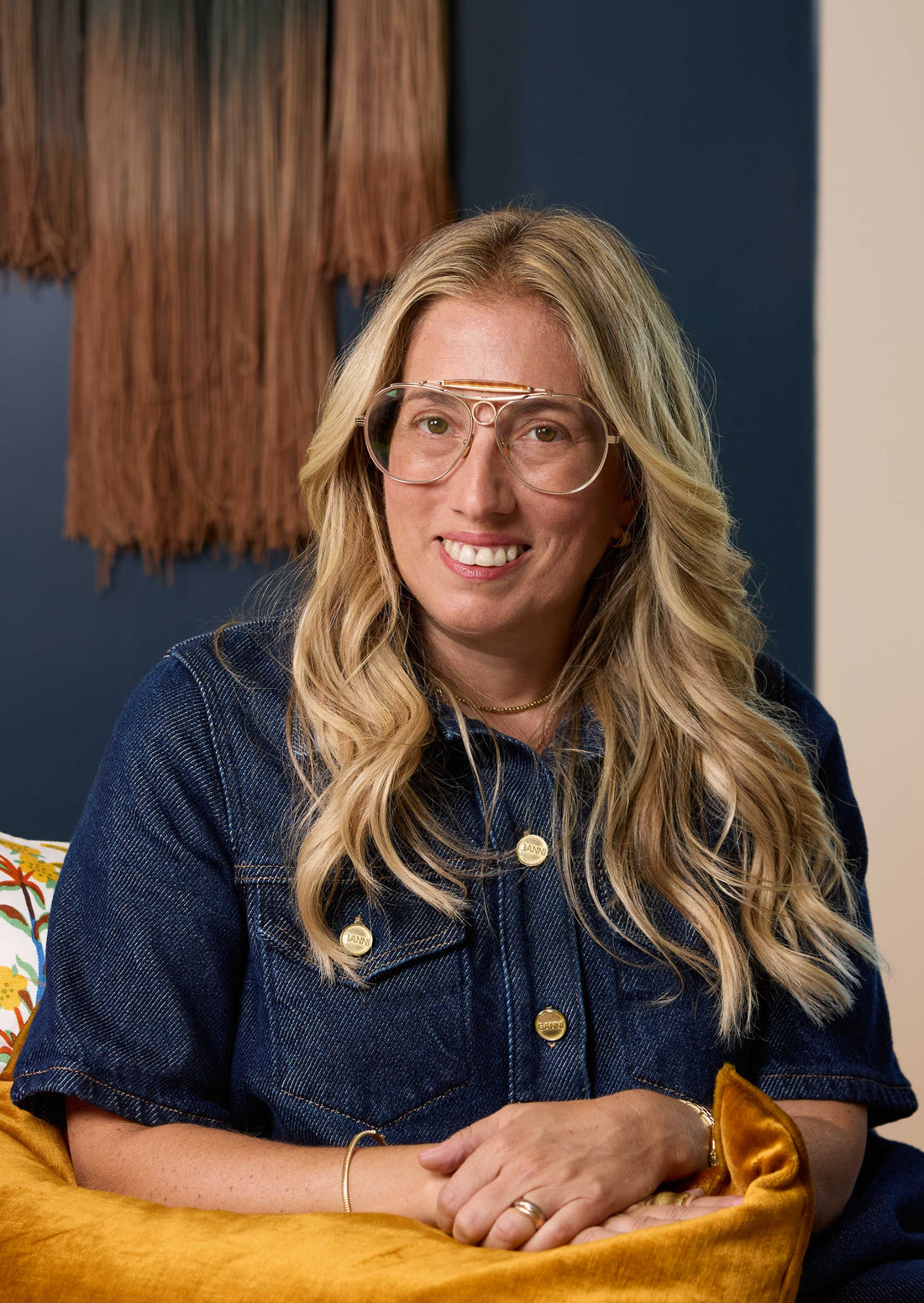
From Idea to Impact: Creating a Business Rooted in Sustainability & Health
In this conversation, Justine Reichman, the Founder and CEO of NextGen Purpose and the Host and Executive Producer of the Essential Ingredients podcast, shares her journey from a childhood shaped by mindful eating to becoming a leading voice in the world of better-for-you food businesses. Justine’s work is all about inspiring and educating foodies everywhere, with a strong focus on sustainability, regenerative practices, and making better-for-you food more accessible to all. Her belief that "EATING right is a HUMAN right" fuels her mission to empower healthier choices and support the growth of sustainable food initiatives.
Leslie: Justine, thank you so much for joining us. For those who may not know you, can you tell us a little about your background and how you got into this space?
Justine: Thank you for having me. I’ve always loved food ever since I was a child. My mom was ahead of her time, introducing me to organic foods and teaching me to pay attention to ingredients. That early awareness stayed with me, and over the years, I became passionate about helping people make informed, healthier choices. I founded NextGen Purpose and NGP Studio to create content around better-for-you food businesses. We produce a podcast called "Essential Ingredients," where we bring on guests like you, Leslie, to share their journeys and insights, inspiring others to build impactful food businesses.
Leslie: How did your early experiences shape your approach to food and health?
Justine: I grew up hearing my mom remind me about foods that didn't work for me, like dairy, which made me congested. Those early lessons taught me to pay attention to how foods made me feel, and that mindset carried over into adulthood.
Leslie: With your focus on ingredients, what is your core philosophy on healthy eating?
Justine: My philosophy is simple – everything in moderation. My dad always said, "Everything in moderation," and I believe it. If you deny yourself everything, you end up craving it more. Instead, allow yourself to enjoy a little bit of what you love without guilt. It’s about balance, not restriction. But it’s not just about moderation; it’s also about mindfulness. Whether you’re cooking at home or buying something from a store, understanding what’s in your food is essential. The better the ingredients, the healthier you are. I always look for transparency and avoid unnecessary additives, preservatives, or "mystery ingredients." I believe that what we put in our bodies has a direct impact on how we feel.
Leslie: You've worked with many small food businesses. What unique challenges do these entrepreneurs face when trying to create healthier products?
Justine: Small businesses face many challenges, from sourcing quality ingredients to maintaining transparency in labeling. Many want to be organic or use clean ingredients, but that often means higher costs. Supply chain issues can also be tough, especially when you’re trying to source sustainable packaging or maintain ethical practices. I always tell founders to start with their core values. You don’t have to be perfect from day one. Focus on what matters most to you – whether it’s sustainability, transparency, or clean ingredients. As you grow, you can gradually incorporate more certifications and improvements.
Leslie: Can you share a memorable story from your work with small food businesses?
Justine: One of the most inspiring experiences was working with an NGO in Mexico. They helped lower-income communities grow their own produce, providing them with food security and an opportunity to earn income. It was a beautiful example of how food can empower communities and create sustainable change. This experience led me to return to California with a mission to reinvent my business by helping people build better-for-you food businesses—not just for underserved communities, but as part of a global conversation about increasing access to healthy food.
Leslie: What are your thoughts on the importance of transparency in food labels?
Justine: Transparency is everything. As consumers, we deserve to know what we’re putting into our bodies. I always look for products without "mystery ingredients." For me, that means avoiding unnecessary additives, preservatives, and anything I can’t easily recognize. I also believe in educating consumers. It’s not just about companies being transparent – it’s also about helping people understand what those labels mean so they can make informed choices.
Leslie: Do you think we are moving towards a healthier, more sustainable food system?
Justine: I believe we are, but it’s a journey. More people are becoming aware of what they consume, and small businesses are leading the way with innovative, healthier products. However, it takes education, patience, and consistent effort. I’ve seen a shift toward regenerative agriculture, which is a game changer. It’s about creating food systems that are not only healthy for consumers but also beneficial for the planet.
Leslie: For consumers who want to make healthier choices, where should they start?
Justine: Start with ingredient awareness. When choosing products, look for transparency. Understand what’s in your food and why it’s there. Avoid unnecessary additives or "mystery ingredients." And remember, it’s okay to make gradual changes – you don’t have to be perfect right away. Focus on whole foods – fresh fruits, vegetables, whole grains, and clean proteins. Even small shifts, like swapping sugary drinks for water or choosing minimally processed snacks, can have a big impact over time.
Leslie: Finally, where can people learn more about you and your work?
Justine: You can find me at nextgenpurpose.com and our podcast, "Essential Ingredients," is available on iTunes, Spotify, iHeart Radio, and YouTube. I love connecting with our audience, so feel free to leave comments or reach out on Instagram at @essential.ingredients.
